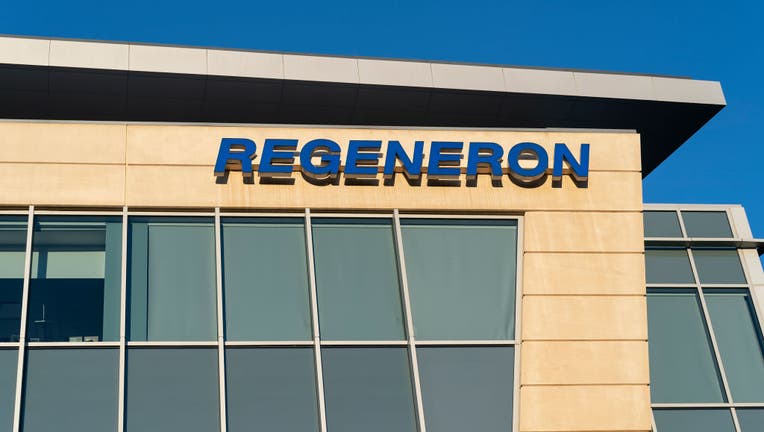FDA approves emergency use of Regeneron COVID-19 monoclonal antibody therapy used to treat Trump

FILE - View of Corporate and Research and Development Headquarters of Regeneron Pharmaceuticals, Inc. (Lev Radin/Pacific Press/LightRocket via Getty Images)
The U.S. Food and Drug Administration has issued an emergency use authorization (EUA) of two more monoclonal antibody treatments for mild cases of COVID-19, according to a news release. The same dual therapy was used to treat President Donald Trump when he was diagnosed with COVID-19 in October, the FDA confirmed.
Monoclonal antibodies are laboratory-made proteins that mimic the immune system’s ability to fight off harmful pathogens such as the novel coronavirus, according to the FDA.
Casirivimab and imdevimab, which are both manufactured by Regeneron Pharmaceuticals Inc., are to be used in conjunction with one another to treat mild to moderate COVID-19 in adults and pediatric patients.
RELATED: Trump says COVID-19 diagnosis was 'blessing in disguise,' touts experimental antibody drug
The joint treatment can also be used in those who are at high risk for progressing to severe COVID-19, which includes people who are 65 years of age or older or who have certain chronic medical conditions, according to the FDA.
“In a clinical trial of patients with COVID-19, casirivimab and imdevimab, administered together, were shown to reduce COVID-19-related hospitalization or emergency room visits in patients at high risk for disease progression within 28 days after treatment when compared to placebo. The safety and effectiveness of this investigational therapy for use in the treatment of COVID-19 continues to be evaluated,” the news release stated.
Casirivimab and imdevimab are not suitable treatments for those who are already hospitalized with COVID-19 or are on a ventilator.
RELATED: FDA authorizes emergency use of Eli Lilly monoclonal antibody therapy to treat COVID-19
“Monoclonal antibodies, such as casirivimab and imdevimab, may be associated with worse clinical outcomes when administered to hospitalized patients with COVID-19 requiring high flow oxygen or mechanical ventilation,” the news release continued.
Data that supports the issuance of the EUA for both casirivimab and imdevimab were based on a randomized, double-blind, placebo-controlled clinical trial.
A total of 799 non-hospitalized adults with mild to moderate COVID-19 symptoms were tested.
“Viral load reduction in patients treated with casirivimab and imdevimab was larger than in patients treated with placebo at day seven. However, the most important evidence that casirivimab and imdevimab administered together may be effective came from the predefined secondary endpoint of medically attended visits related to COVID-19, particularly hospitalizations and emergency room visits within 28 days after treatment,” according to the news release.
Only 3% of patients who were treated with the dual monoclonal antibody treatment saw the virus progress to the point where they had to be hospitalized or needed to visit the emergency room.
Patients who participated in the trial showed that no matter what the dosage was, the outcomes were positive as compared to those who received a placebo.
“The FDA remains committed to advancing the nation’s public health during this unprecedented pandemic. Authorizing these monoclonal antibody therapies may help outpatients avoid hospitalization and alleviate the burden on our health care system,” said FDA Commissioner Stephen M. Hahn, M.D. “As part of our Coronavirus Treatment Acceleration Program, the FDA uses every possible pathway to make new treatments available to patients as quickly as possible while continuing to study the safety and effectiveness of these treatments.”


